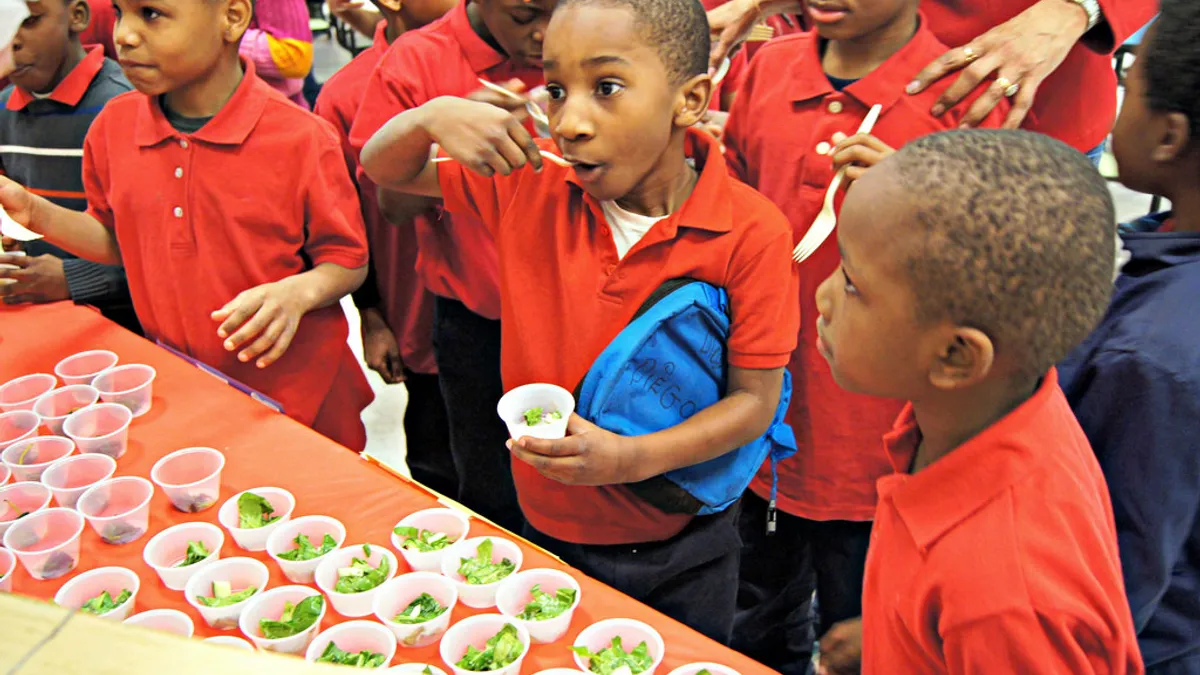Dive Brief:
- Since its rollout in 2010 through the Healthy Hunger-Free Kids Act, the Afterschool Nutrition Program steadily increased its funding to provide about 1.3 million dinners and 1.5 million afterschool snacks per day in October 2018. The nourishment was provided through 48,000 afterschool sites nationwide, according to a new report from the Food Research & Action Center.
- These numbers are a significant increase from the previous year, when 10.4% fewer students were served, but only one in 16 children who receive free or reduced lunch have access to afterschool nutrition programs. If Congress approves the Child Nutrition Reauthorization Program, more meals could be served, the report says, also adding that allowing sponsors like YMCAs and Boys & Girls Clubs to provide the meals year-round through the Summer Food Service Program would eliminate more barriers.
- Despite the progress, millions of dollars have been left on the table by states not fully taking advantage of the program, leaving millions of students unserved, according to the report. Streamlining the Afterschool Meal Program and Summer Food Service Program and allowing schools to serve supper through the National School Lunch Program would allow the program to continue to expand.
Dive Insight:
From food trucks in to in-school pantries, districts continue to seek ways to keep students fed, even after the dismissal bell rings. Sixty percent of the 20 million students who qualify for free and reduced lunches say they return to school in the morning with empty stomachs because they didn’t have after school snacks, dinner or breakfast at home.
The University of Massachusetts’ babyBerk food truck is repurposed in the summer to supply between 2,000 and 3,000 meals five days a week to students in high-poverty areas in Amherst, Massachusetts. Another creative solution can be found in San Antonio Independent School District, where the Student Fairness in Feeding Act allows schools to create food pantries from cafeteria fare that would otherwise be tossed in the trash.
A Cambridge, Massachusetts, the Weekend Backpack Program sends students home on Fridays with two breakfasts, two lunches and snacks to help them get through long, hungry weekends. Teachers with students who received these backpacks noted students were less nervous and agitated when the weekend rolled around. The attendance rate rose, as well.
Research shows hungry children have trouble focusing and staying on task, and that young hungry students have more behavior problems. Simply skipping breakfast is enough to start a student's school day off on the wrong foot.





 Dive Awards
Dive Awards






